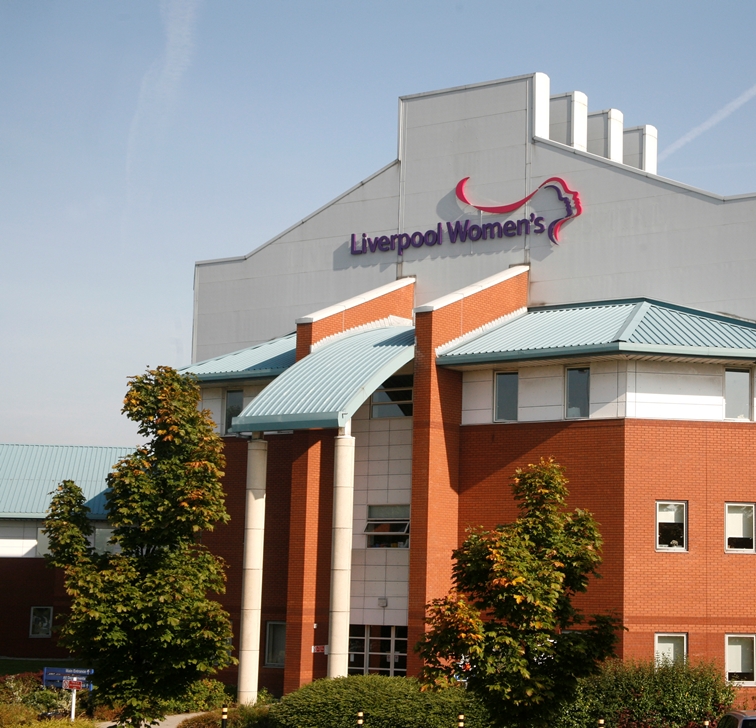Options for the future of Liverpool Women’s hospital published
Friday, January 6, 2017

Four options for the future of services provided by Liverpool Women’s hospital have been published.
The options have been developed as part of a review of women’s and neonatal services, which began in March 2016 and is being led by NHS Liverpool Clinical Commissioning Group (CCG) as part of its Healthy Liverpool programme.
The Healthy Liverpool programme is looking at hospital services across north Merseyside (covering Knowsley, Liverpool and Sefton) as part of its work.
This review is being delivered by Liverpool CCG in partnership with Liverpool Women’s, with support from South Sefton CCG and Knowsley CCG, whose patients also use these services.
Aintree University Hospital, Alder Hey Children’s Hospital and the Royal Liverpool and Broadgreen University Hospitals are also closely involved.
The review is happening because the needs of patients have changed since Liverpool Women’s opened more than 20 years ago.
Women are living longer and having babies later in life, while advances in medicine mean more premature and unwell babies are surviving when they wouldn’t have in the past.
This means patients require more complex care which isn’t always available at the Women’s, so many women have to be transferred to other hospitals before they can receive appropriate care, including some of the most seriously ill women. There are also new standards of care which the Women’s is unable to meet in its current location.
The review has involved staff from NHS organisations across the city, including midwives, nurses and doctors from the Women’s and other hospitals. The public were also asked for their views on the case for change at the hospital last summer, and these were used to develop the four options.
The options are:
- Relocate women’s and neonatal services to a new hospital building on the same site as the new Royal Liverpool Hospital
- Relocate women’s and neonatal services to a new hospital building on the same site as Alder Hey Children’s Hospital
- Make major improvements to Liverpool Women’s Hospital on the current Crown Street site
- Make smaller improvements to the current Crown Street site.
The options are included in a draft pre-consultation business case (PCBC), which was presented to the Board of Liverpool Women’s today and which is available for the public to download at www.healthyliverpool.nhs.uk.
The PCBC is a detailed technical document which explains how these options have been developed and how a preferred option was chosen.
The preferred option is to relocate women’s and neonatal services to a new hospital building on the same site as the new Royal Liverpool Hospital. This is because it offers the most benefits for patients and provides solutions to the challenges set out in the case for change, including improved safety and patient experience, reduced transfers of patients and less separation of mothers and babies. This option is judged to support long term clinical and financial sustainability and best value for money.
Dr Fiona Lemmens, Clinical Director for the Healthy Liverpool Hospitals Programme, said: “It is really important to us that this is an open and transparent process. We hope that publishing the draft business case will help the public understand what we’re doing and see how the views they shared with us last summer are being used to shape the future of these services. We want to ensure women and newborns receive the very best care possible and we believe the preferred option will allow us to do this.”
Andrew Loughney, Medical Director at Liverpool Women’s, said: “Midwives, nurses and doctors at Liverpool Women’s have been central to developing options for the future as part of this review. We are confident that the preferred option is best placed to enable us to address the main issues facing our patients. Moving to a new purpose built building would mean that we could provide the very best care for future generations of people in Merseyside.”
All four options would require significant capital investment and NHS England and NHS Improvement, the regulators for the NHS, have asked that further work is now done to develop detailed funding plans. This work needs to show how capital funding could be secured and demonstrate that it represents value for money. It is recognised that this presents a challenge in the current environment of constrained NHS resources.
At the same time, the final version of the PCBC needs to reflect the findings of a broader review of neonatal services, which is currently being undertaken by the Cheshire and Merseyside Neonatal Network and which will report in the spring of 2017.
Once this additional work is completed a final version of the business case will be submitted to NHS England for approval. If NHS regulators are assured there is a sound case to invest, the options will go out to formal public consultation, giving the public an opportunity to share their views on detailed proposals for the future of women’s and neonatal services.
Dr Lemmens added: “I want to stress that this is an ongoing process and no final decisions will be made until the conclusion of any future public consultation.”
Members of the public who want to be kept informed can sign up at www.healthyliverpool.nhs.uk or call 0151 296 7537.





